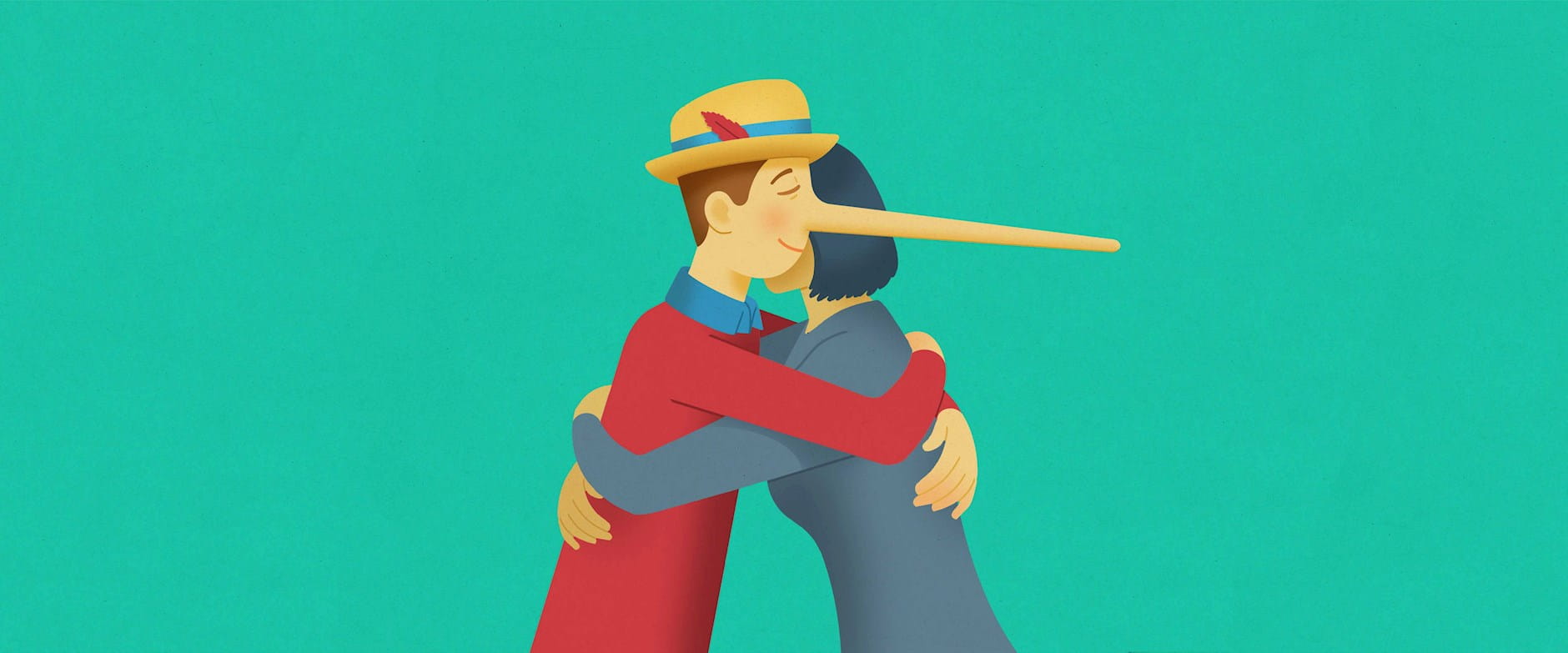
How Should You Deliver Negative Feedback?
Chicago Booth behavioral science professor George Wu discusses the art of constructive criticism.
How Should You Deliver Negative Feedback?
Dan Page
A friend asks if you liked the soup she made. A colleague asks what you think of his suit. In moments such as these, telling the truth could harm someone’s feelings or self-esteem. Does that make lying seem like the right choice?
Research by Chicago Booth’s Emma Levine, focusing on this question, suggests that for many people, merely sparing someone’s feelings isn’t enough to justify lying. It is only when the truth causes “unnecessary harm” that most people find lying to be ethical.
“Unnecessary harm is a function of how much value the truth has in the long run, whether you can learn and grow from it, and how much emotional pain and suffering it will cost you,” Levine says. If telling the truth will cause someone emotional pain and suffering without leading to growth or long-term value, many think lying is justifiable.
For example, if your colleague in the ill-fitting suit is about to give an important presentation and cannot change first, many people think that answering truthfully would cause unnecessary harm. In situations such as this one, people believe lying is ethical, the research finds. What’s more, people also want to be lied to in these situations. “We think of deception as bad, but yet, we want people to deceive us all the time,” says Levine.
She conducted a series of experiments involving hundreds of participants to understand at a fundamental level how people make moral judgments about honesty and dishonesty. In one study, she gave participants a scenario in which a manager received a list of employees to lay off within the next month due to a company reorganization. When told that one of the employees on the list dropped in on a Friday afternoon for an update about the reorganization, just under 23 percent of participants said it would be acceptable for the manager to lie. But when told that the employee who dropped in was getting married the next day, the proportion endorsing deception more than doubled to 52 percent. In this case, they saw telling the truth—and disrupting the potential bliss of a wedding and honeymoon—as causing unnecessary harm, and therefore saw lying as ethical.
The research identifies eight “community standards of deception,” or situations in which the majority of respondents agreed it was ethical to lie. Many deemed it acceptable to lie to people who were emotionally fragile, near death, or would be confused by the truth. They also found it more ethical to lie when doing so would help others save face in public or concentrate on something important. Lies that were subjective or trivial were also considered in bounds, and those about a situation the recipient was ultimately unable to control.
In a series of vignettes, study participants were more likely to approve of lying the lower the perceived value of telling the truth and the higher its perceived harm.
Participants in the experiments said they would value ethical deception both as the liars and as the people being lied to. In one study, Levine divided participants into three groups: communicators, third-party judges, and targets. No matter how participants were asked to view themselves—as the liar, the lied-to, or separate from the lie—a majority endorsed deception when the truth might cause considerable immediate harm and would have low long-term value. If telling the truth will hurt someone emotionally or physically and won’t encourage learning or growth, why be honest?
“I would want someone to lie to me when the alternative of telling the truth would make me feel worse off and I would have no control over what happens,” wrote one participant. “For example, if my beloved dog died after being hit by a negligent driver, I’d much rather my parents or friends have told me the dog died peacefully in its sleep than to tell me the facts.”
Others explained that they would want people to lie about something that couldn’t be changed, and one person gave the example of asking friends whether they “looked OK” for a night out. If the question was posed from home, “I hope they would tell me the truth, so I could change whatever looked bad (as best I could),” wrote the participant. But if the same person asked the same question when already out, and received an honest but negative response, “my night would be ruined and I would have to stay at the bar knowing I looked bad.”
Levine says that a lot of research in this area, including hers, documents cases where “communicators think it’s OK to lie and the targets don’t agree.” But when a lie clearly involves unnecessary harm, targets and communicators largely agree it’s preferable to the truth, she finds.
Emma Levine, “Community Standards of Deception: Deception Is Perceived to Be Ethical When It Prevents Unnecessary Harm,” Journal of Experimental Psychology: General, February 2022.

Chicago Booth behavioral science professor George Wu discusses the art of constructive criticism.
How Should You Deliver Negative Feedback?
A different framework could help confront misinformation.
We Need a New Way to Talk about Lying
The widely held view that humans immediately notice what’s in front of them is undoubtedly wrong.
Why Do Some People See Things Faster Than Others?Your Privacy
We want to demonstrate our commitment to your privacy. Please review Chicago Booth's privacy notice, which provides information explaining how and why we collect particular information when you visit our website.